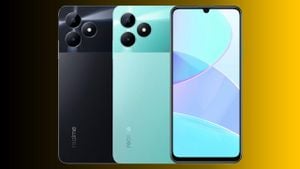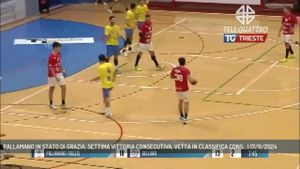The recent Four Nations Face-Off finals saw Canada secure a thrilling victory against the United States, winning 3-2 after overtime. Following the match, Canadian Prime Minister Justin Trudeau took to social media to celebrate the win with some biting commentary directed at former U.S. President Donald Trump. Trudeau’s post included, "You can’t take our country — and you can’t take our game," which was a pointed reference to Trump’s past comments about wanting to turn Canada—junior hockey's powerhouse—into the 51st state of the United States.
Earlier, Trump had been vocal about his support for the American team, stating on Truth Social, "I’ll be calling our GREAT American Hockey Team this morning to spur them on..." Yet, even as he encouraged Team USA, he couldn't resist poking fun at Trudeau, whom he has repeatedly labeled the 'Governor of Canada' instead of Prime Minister.
The atmosphere of the game was charged, as fans witnessed what was at stake—national pride. Canada’s victory, achieved through grit and determination, was celebrated not only on the ice but also through the digital exchanges between the leaders of the two countries. Trudeau's jab was bold, considering Trump's frequent outbursts about Canadian affairs.
Trump, reacting to Trudeau’s statements, labeled the outgoing Prime Minister as "a loser." During his appearance on The Brian Kilmeade Show, Trump said, "Justin’s sort of a nice guy, but he’s a loser. Always has been. I think he’s done a very bad job for Canada." His comments underscored the continuing rivalry and the sharp disagreements between the two leaders.
Despite not watching the entire game due to other commitments, Trump was able to catch the thrilling ending. He relayed, "The game was fantastic. I watched the end of it. Both teams played really well. I thought it was terrific." His comments express admiration for the competitive spirit demonstrated by both teams, even as he maintained his rivalry with Trudeau.
After Trudeau’s taunts, Trump humorously commented about even predicting Trudeau's political future. When informed about Trudeau's impending resignation, Trump mused, "Looks like he’s not going to run. That’s a smart move because he wouldn’t have a chance of winning. So, Justin’s sort of a nice guy, but he’s a loser." Trump’s prediction reflects his view of Trudeau’s leadership—characterizing it as detrimental to Canada.
The geographical and cultural rivalry intensifies as politicians use sports as ammunition. When the U.S. national anthem was booed at previous tournaments, Trump praised the fans at Boston’s TD Garden for their decorum during the Canadian anthem, stating, "I think it’s great they didn’t boo us." His remarks come alongside his long-standing bipartisan tariff threats against Canada, reflecting the complex relationship between the two countries.
Moving forward, it remains to be seen how this hockey rivalry might influence U.S.-Canada relations. Trump's brash comments and Trudeau's attempts to assert Canadian pride only heighten the stakes as both sides navigate the delicate balance of sportsmanship and political contention.
Despite the point-scoring exchanges off the ice, the game itself serves as reminder of the historical and cultural ties binding the two nations. Hockey is commonly seen as more than just a sport; it’s part of the Canadian identity and plays a significant role in their international image. Both leaders may use these moments as they navigate broader national policy discussions, underscoring sports' role as both unifier and divider.



